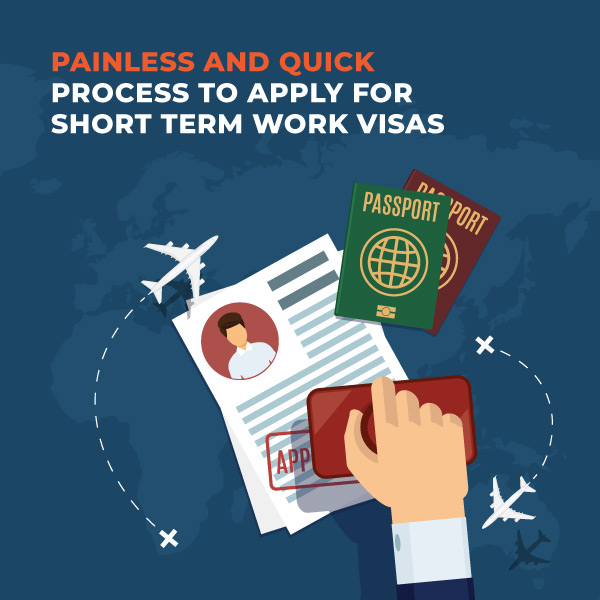PAINLESS AND QUICK PROCESS TO APPLY FOR SHORT TERM WORK VISAS
South African companies find themselves from time to time in the position where they require the skills or expertise of a foreign national on an urgent basis.
The process of obtaining a short term work visa from the Department of Home Affairs can be quick and painless if the correct procedures are followed. The project or assignment can generally be completed in a relative short period of time. The short term work visa will then allow the foreign worker to enter SA for a period of 90 days on a visitor’s visa, enabling him to conduct work.
Definition of work
The definition of work includes any activity normally associated with the running of a business, being employed or conducting any activities consistent with employment or consistent with the profession of the person, with or without remuneration.
Foreign nationals attending conferences or meetings in SA are not required to apply for short term work visas, since these activities are not considered work under the definition.
The application
It is important to ensure that applications are done thoroughly from the start. The company will be required to prepare a motivation setting out the duration, nature of the assignment, a job description of what will be required from the foreign worker, and why this particular application should be considered on an urgent basis.
Once completed the application must be submitted to the foreign mission in the country the worker is resident in. In most instances the application will be processed within two to 10 working days, subject to backlogs at the South African embassies.
In Xpatweb’s experience applications can be processed within five to seven days if there is a strong motivation for the need of the foreign worker’s skills, and there is a good case to prove urgency.
Applications can be rejected should the department suspect there are misrepresentations or the application has not been properly completed. None of Xpatweb’s applications on behalf of clients has been denied.
Applications may be denied if it does not contain the identity of the prospective employee and host, if it does not have the necessary urgency that is required, if the duration is not stipulated or if it is not accompanied with supporting documents such as accommodation and flight reservations and bank statements.
Companies who are of the view that the department’s adjudication process was unfair, or if they believe the adjudication was not done properly, may apply to the Department of Home Affairs’ head office to request a review of the application in order to have the decision reversed or rescinded.
Project overruns
Unforeseen circumstances may lead to the unfortunate situation where a project or an assignment cannot be completed in the 90 days allowed for under the short term work visa. The visa may be extended for another 90 days, but it can only be extended once.
The department requires sufficient reasons why the assignment could not be completed in the initial time given. The company will have to offer a timeline and assurance that the project will be completed within the 90 days’ extension period.
The processing time for extension applications range from two to four weeks. Our advice to clients is to remain cognisant of the validity of their work visas. They need to do proper planning when they have foreign resources in the country.
Once they foresee that the assignment will overrun the validity of the visa, they need to contact us immediately to advise them on the way forward. Xpatweb can prepare an urgent application on their behalf and submit it to the department for the extension.
It seldom happens that projects or assignments are not completed within the first 90 days allowed under the short term work visa. However, when something beyond the company’s control does cause delays, companies are generally allowed the 90 days extension.
There are some profession or activities that are not allowed entry into the country under the short term work visa. This includes:
- Exotic dancers – or people in the “adult industry”;
- Consulting work;
- Freelancers or self-employed workers;
- Contract workers;
- Project managers;
- Casual labourers;
- Seasonal labourers; and
- Foreign workers seeking employment.

